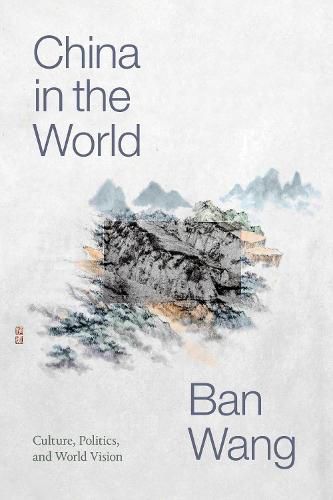Readings Newsletter
Become a Readings Member to make your shopping experience even easier.
Sign in or sign up for free!
You’re not far away from qualifying for FREE standard shipping within Australia
You’ve qualified for FREE standard shipping within Australia
The cart is loading…






In China in the World, Ban Wang traces the evolution of modern China from the late nineteenth century to the present. With a focus on tensions and connections between national formation and international outlooks, Wang shows how ancient visions persist even as China has adopted and revised the Western nation-state form. The concept of tianxia, meaning all under heaven, has constantly been updated into modern outlooks that value unity, equality, and reciprocity as key to overcoming interstate conflict, social fragmentation, and ethnic divides. Instead of geopolitical dominance, China’s worldviews stem as much from the age-old desire for world unity as from absorbing the Western ideas of the Enlightenment, humanism, and socialism. Examining political writings, literature, and film, Wang presents a narrative of the country’s pursuits of decolonization, national independence, notions of national form, socialist internationalism, alternative development, and solidarity with Third World nations. Rather than national exceptionalism, Chinese worldviews aspire to a shared, integrated, and equal world.
$9.00 standard shipping within Australia
FREE standard shipping within Australia for orders over $100.00
Express & International shipping calculated at checkout
In China in the World, Ban Wang traces the evolution of modern China from the late nineteenth century to the present. With a focus on tensions and connections between national formation and international outlooks, Wang shows how ancient visions persist even as China has adopted and revised the Western nation-state form. The concept of tianxia, meaning all under heaven, has constantly been updated into modern outlooks that value unity, equality, and reciprocity as key to overcoming interstate conflict, social fragmentation, and ethnic divides. Instead of geopolitical dominance, China’s worldviews stem as much from the age-old desire for world unity as from absorbing the Western ideas of the Enlightenment, humanism, and socialism. Examining political writings, literature, and film, Wang presents a narrative of the country’s pursuits of decolonization, national independence, notions of national form, socialist internationalism, alternative development, and solidarity with Third World nations. Rather than national exceptionalism, Chinese worldviews aspire to a shared, integrated, and equal world.